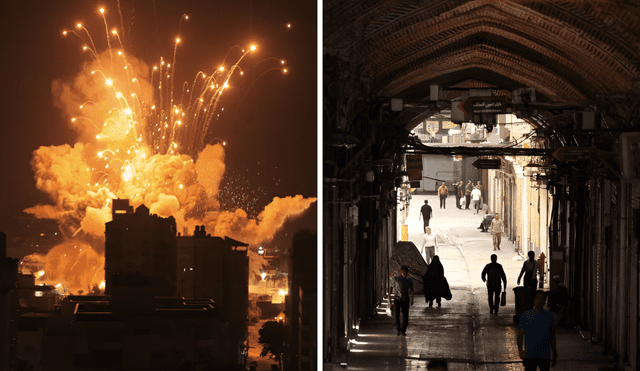Tehran streets empty as Israel-Iran war forces civilians indoors or into flight
Civilians flee Tehran as missile strikes and fear of wider war clear streets amid weeklong Israel-Iran conflict.

Whole neighbourhoods throughout Tehran are becoming increasingly vacant as the hostilities between Israel and Iran ramp up. With missile and drone strikes being traded back and forth for over a week, many chose to flee Tehran, while others are hiding indoors unsure of what will transpire next.
Accounts from locals paint a city on edge, with residents throughout the wealthy northern district of Sa'adat Abad reporting on closed shops and uninhabited streets. "They're all leaving," reported Sima, 35, via WhatsApp, adding that she was still there, but understood the strikes were on nuclear facilities, and not civilians. Her message reflected both terror and hope for a regime change.
Fear spreads amid explosions and blackouts
Civilians in Tehran are living with anxiety indigenous to new explosions whatever the day, of opposition overall. Since Israel has started to attack Palestinians, just slightly less than 600 fatalities have been reported in Iran; thousands others have been reported injured. The U.S. has called for evacuations from Iran, but many like Sima have decided to remain behind in the hopes that potentially this may create political change.
The chaos has been salient even digitally. Communications are tenuous and access is difficult with the government reportedly cutting the internet nearly entirely. People like Azam Jangravi who are activists from abroad and are now in Canada, describe receiving terrifying messages from family members at home, one message read, "You hear the prayer call… but you hear bombs." This seriously illustrates the confusing horror both in sounds and in real time.
Divided public: regime opposition vs. national unity
While some Iranians see a possibility to end decades of oppression due to the attacks, others have concerns that foreign involvement could make things worse. A man from Karaj, west of Tehran, spoke to NBC and explained he is ready to defend Iran, even though he opposes the Iranian leadership. "We might not be for this regime but we are certainly not for attacks from the outside. We are nationalists," he said, reflecting what many hold in their minds.
The tensions also opened wounds from past struggles. Protests in 2022 in response to the death of Mahsa Amini while in police custody remain fresh in people's memory and some wonder if the crisis in military engagement might revisit calls for change. "At night we shout out our windows: ‘Down with the dictator,’" said Sima, who asked to remain anonymous and save her own security. Fear and uncertainty are the companions of people in a city trying to spend their days as best they can while waiting for a signal of what could come next.













